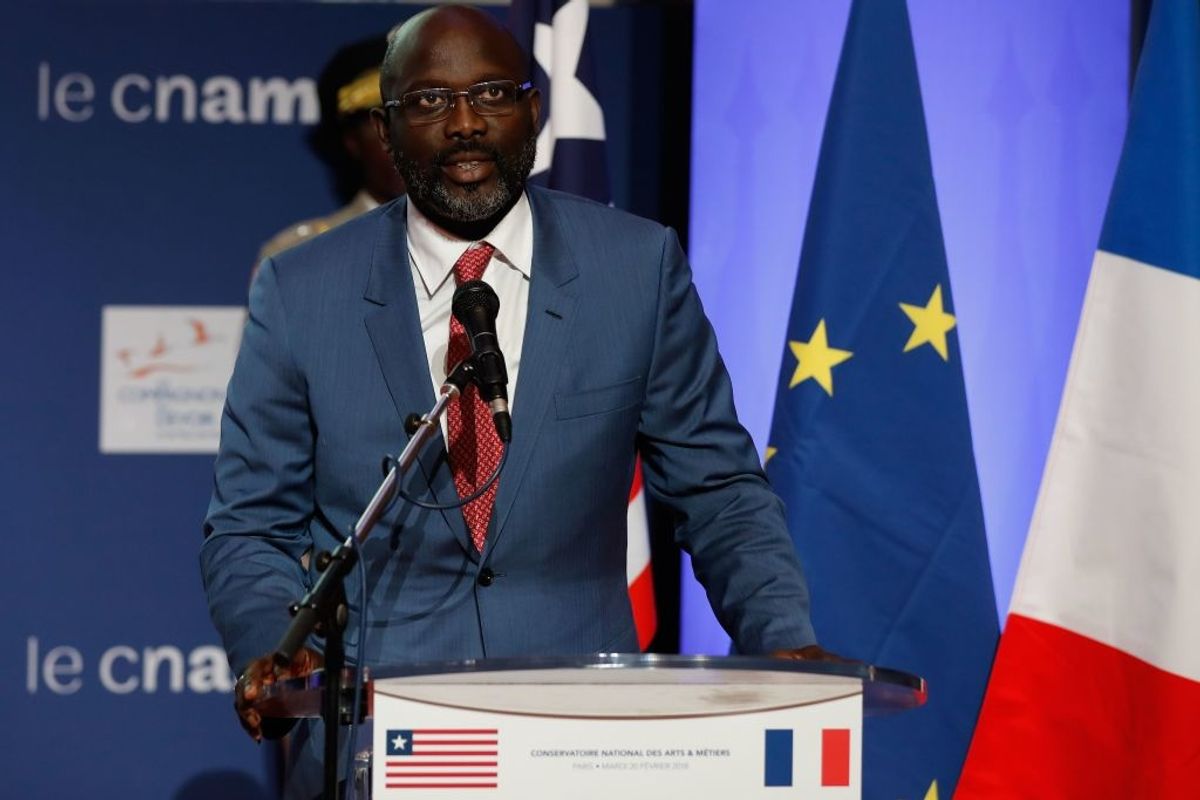Liberia Officially Declares Rape a National Emergency
The move comes after protests this past month which saw thousands of Liberians demonstrating against the alarming rise in the rate of sexual assault.

Liberian President George Weah addresses the audience as he visits the Conservatoire des Arts et Métiers, in Paris on February 20, 2018.
The Liberian government has recently declared rape a national emergency, according to Aljazeera. The move comes after mass protests last month, dubbed "March for Justice", which saw Liberians demonstrating against the alarming rise of sexual assault in the West African country. The government, under current President George Weah, has announced that it will be introducing new measures to tackle the crisis in addition to setting up a national security task force.
Last month, the city of Monrovia was rocked by thousands of Liberians protesting in order to bring attention to the alarming rise in the rates of rape and sexual assault in the country.
In an address by President Weah, he said that the country was "witnessing what is actually an epidemic of rape within the pandemic, affecting mostly children and young girls across the country." Additionally, Liberia has also been experiencing continued protests as discontent under President Weah grows. Many have called for the statesman to step down amid a spiralling economy and alleged corruption at the hands of his government.
Liberia is neither the first nor the last African country to declare rape a national emergency or crisis.
This past June, Nigeria declared a state of emergency on rape with 36 governors saying that they are "committed to ensuring that offenders face the maximum weight of the law." Similarly, Sierra Leone also declared a national emergency on rape last year. In stark contrast, South Africa, which is home to the highest femicide rate in the world and generally high incidents of gender-based violence, has yet to declare any state of emergency with regards to the continued violation of South African women. Despite protests, both in the form of online movements and on-the-ground demonstrations, the numbers are on the increase.
- Kenyan Women Fight Street Harassment Using 'Chalk Back ... ›
- #WeAreTired: Nigerians Rally Online to Demand Justice for Victims ... ›
- #JusticeForUwa, Nigerians Demand Answers for Student Killed in ... ›
- Tunisian Women March Against Gender-Based Violence - OkayAfrica ›
- Global Pandemic Fails to Stop South Africa's Gender-Based ... ›
- 'Stop Killing Us': A Visual Short Story of Gender-Based Violence and ... ›
- Tunisian President Calls for Death Penalty Following Murder of Young Woman - OkayAfrica ›

